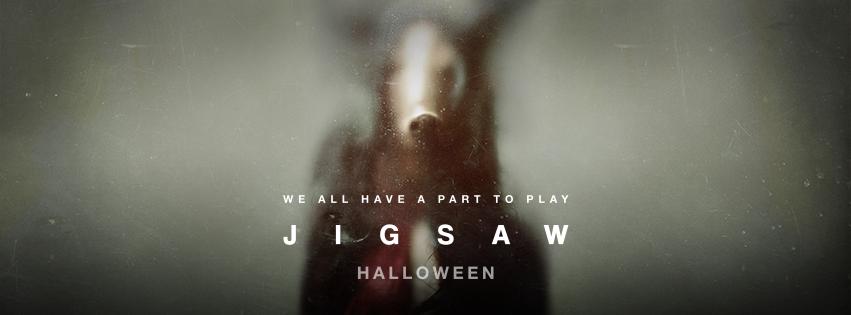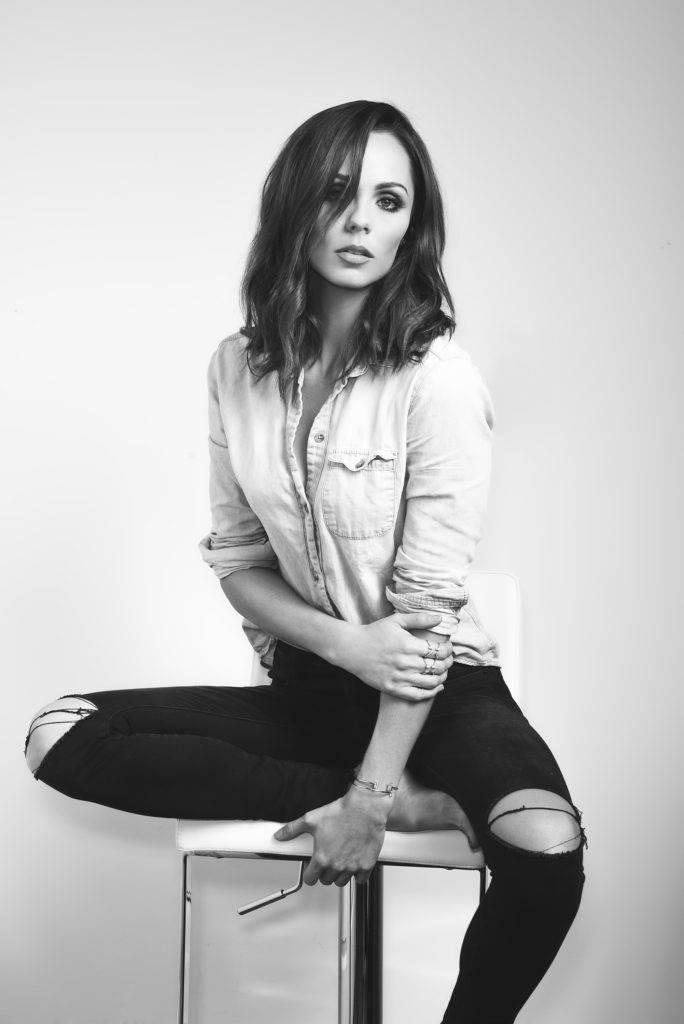
*This feature originally ran on 10/27/17
Horror fans are committed to their genre. Some love the suspense. Some love the gore. Others fall skull over calcaneus (heel bone) for a franchise that puts the terrifying fate of both elements in the hands of a charismatic celluloid psycho. There were plenty of those rising up from their own credits-rolling ashes throughout the 70s and 80s, from Freddy Krueger to Jason Voorhees, but recent years have only given viewers a small handful of newly-minted madmen to keep them up at night.
John Kramer, aka Jigsaw, is one such character.
No stranger to rabid fandoms thanks to memorable turns in “V” and “Smallville,” Laura Vandervoort is set to get her feet wet within the horror genre with a starring role in the latest installment of the Saw franchise, “Jigsaw.” As captivating in conversation as she is on screen, the Toronto native recently wrote a letter to her younger self in Backstage, sharing her discovery of confidence and self-acceptance in a career where so much of a person’s individual success can be decided upon by both fate and other people.
We recently sat down with Vandervoort to discuss that perfectly-penned letter, how the person she was writing to would have handled her current experience with “Jigsaw,” and why she had a difficult time finding an understanding in her character’s horrifying actions.
TrunkSpace: We read your recent letter to yourself that was published in Backstage. It was very personal. In the process of writing it, did it all just pour out of you or did it involve some self-discovery as well?
Vandervoort: I would say it was a bit of both. When I started writing, it just poured out, but as I went, I realized a lot about myself that I guess I really hadn’t given myself an opportunity to think about, or things that I knew I should have been doing more of that I hadn’t been. As I was writing, it was sort of cathartic for me and it was important because, only in the past five years have I found a new way to approach this business.
I started when I was a kid. I’m sure there are books out there, but there’s no real manual on how to get through the process as a child growing up and becoming an adult actor and being a female in this business and the rejection and the pressures and all of that.
TrunkSpace: And now with social media being such a big factor, it must add an entirely new dimension to it all.
Vandervoort: Oh, 100 percent! I mean, first of all, social media has become a separate job, I think, for a lot of people in this industry. It is a way to promote things you believe in, your work, organizations, but also, it can be evil. You can go down that rabbit hole of negativity so quickly. If you’re in the business or not in the business, it’s not the healthiest thing, but it’s sort of a necessary evil in a way. On the positive side, it’s a way to connect with fans, talk to people, and put out a message that you believe in.
And I think for young women, too, it’s dangerous for them to compare themselves to things online, in general. We can say it a million times, but you just learn as you grow up. You discover who you want to be, not who people want you to be.
TrunkSpace: That’s what drew us to your Backstage piece. You don’t have to be an actor to relate to it. There was a section in there where you talked about not always having to be perfect in what you were doing, and for many people, that resonates regardless of the industry.
Vandervoort: Yes, and that can be on many different levels. I was specifically writing it about the auditioning process. You don’t have to go in and have a polished performance. Again, this is my opinion and experience, but I used to just kill myself over trying to get everything word perfect and exactly what I thought that they wanted to see. That’s not the case. You can go in and you can discover while you’re in the room, and you can hold the lines in your hand. I just think, in a way, there’s something more interesting in that because they’re seeing an unpolished human, which is more interesting to watch than someone who’s got their shit together. It just makes you relatable.
But, it could also be seen in that, as a woman in the business, you don’t have to be perfect. You don’t have to be exactly like everyone else. Everyone has their own look. Everyone has their own style and that’s what makes you interesting as an actor. That’s what you put into the character – you. Because, like I said in the article, that’s something that you have that no one else has. You.
TrunkSpace: Perfection is an illusion that everyone is chasing.
Vandervoort: Yeah, you’re constantly going to be chasing that unachievable goal and you’re going to either exhaust yourself, just give up, or you’re going to have a frustrating journey.
Just accept that you are you, and you are the way that you’re supposed to be, and you find your own path and you perform the way you want to perform. But again, it takes time, too. You can’t just read something that someone wrote and go, “Okay. I get it.” You have to go through the process.
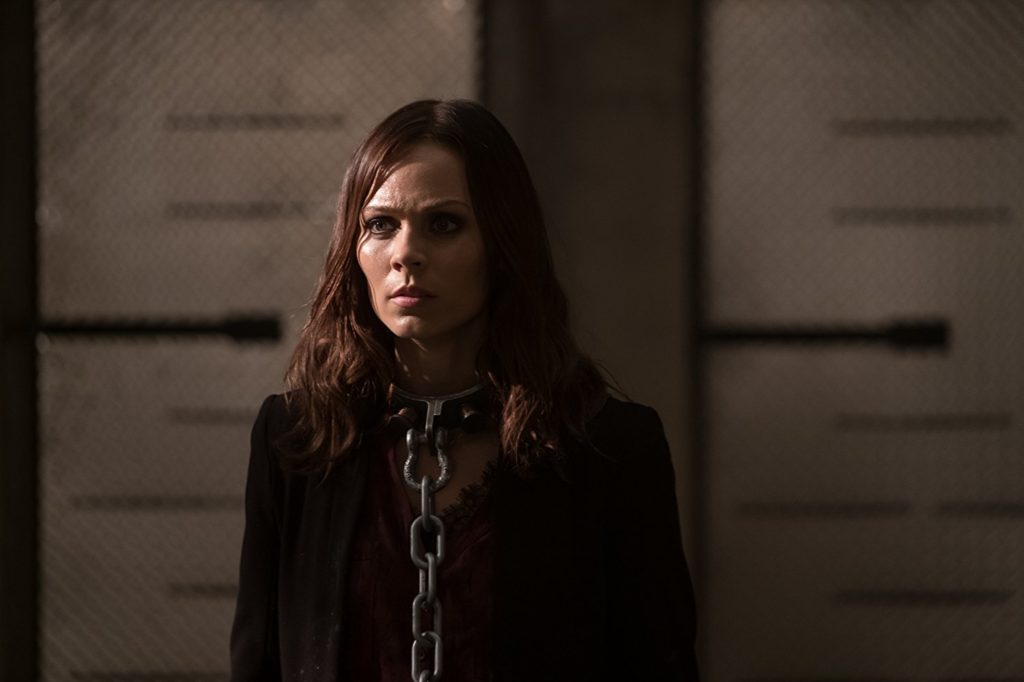
TrunkSpace: So would the Laura you are speaking to in that letter, would her experience on “Jigsaw” have been different for her than it was for you today?
Vandervoort: Yeah, but really, only in what I’ve learned over the years. I didn’t know that I could relax and have fun on set. I didn’t know that it was okay to laugh. You don’t have to be serious all the time. You can find your own moments in those scenes. You can disagree with someone.
As a kid, everyone always said, “You’re so mature. You’re like a grownup.” And I always thought that was a great thing until I realized I didn’t have any fun. All those years went by and I didn’t joke around. And now, I do. I take time out of the day to just be where I am, not to be so tunnel-focused and just enjoy the experience and the process, the ups and the downs.
I really wish I hadn’t been like that. I think I could have had so much more fun.
TrunkSpace: Because for us, the viewers, we remember the end product. But for you, the memories are going to come from the experience, right?
Vandervoort: Exactly. And I couldn’t tell you a lot of the experiences growing up as a kid on set, because I only thought about my scenes, and the directors, and what the director said. I remember bits and pieces of things, like moments with actors. Caroline Rhea, when I was on a Disney movie with her, she had a heart to heart with me, but that rarely happened as a kid. And now, I’m making long, lifetime friendships with actors and producers and directors, and being my true self.
TrunkSpace: You mentioned having fun on set now and taking the time to enjoy the process, but looking at the trailer for “Jigsaw,” your character seems like she’s in some really serious situations and sort of, more or less, focused on survival. From a performance standpoint, does that force you to remain in a heightened fight-or-flight mode?
Vandervoort: Yeah, the majority of the scenes in “Jigsaw” were high stakes. I definitely still had to be in a somewhat focused head space for some of the particular scenes that you’ll see in the movie, that I as a human being couldn’t quite wrap my head around. I mean, some of the things that my character has done, they were hard to shoot those scenes. And, when I was in the traps, obviously it’s very physically and emotionally draining. But that’s what it needed to be, and all the other actors all just went for it. And then, in between takes, we joke around and get back to it.
I used to think that that would hinder a performance if I relaxed, especially with a movie like this, but I actually think it helped because it would refresh your mindset and you go back to the scene and something different would come forward. You’re not just in this robotic state, doing the same thing.
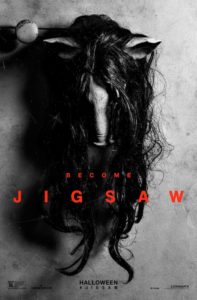 TrunkSpace: Is it hard not to bring that heightened level of performance – the racing heart experience – home with you at the end of the day?
TrunkSpace: Is it hard not to bring that heightened level of performance – the racing heart experience – home with you at the end of the day?
Vandervoort: I tend to not take that stuff home. With this character, with any other intense characters, I do mentally prepare and prepare with my script weeks in advance and however much time I have, and sometimes will come up with a playlist that I think that the character would relate to, or that helps me get into that mindset. But the minute that you’re done, you’re done. That’s the end of the day. You go home and that’s you. That’s your life and then you get back into it the next day.
TrunkSpace: One of the things that the Saw franchise has always been good at is being inventive within the genre itself. In a place where fans have sort of seen everything, what does “Jigsaw” have that people may feel like they haven’t seen before?
Vandervoort: Well, one of the things I was excited about, aside from being a part of the Saw franchise, which is one of the biggest franchises out there and I’m a huge fan of, was Michael and Peter Spierig, the directors. I was already a fan of their work. I watched “Predestination” recently and thought it was just brilliant, and visually they’re so talented. They’re just incredible directors to work with, and I knew that before even meeting with them. And so, I think that the fans of the franchise will get everything that they’ve always loved about the movie – Kramer and the traps, and people making amends and apologizing for their behavior and whatever they’ve done in society, but with Peter and Michael, I think just visually, this is going to be a different film. They delve deeper into characters and their pasts. You really get to see more of a glimpse into why they did what they did, why they deserve to be there, and they have more, I think, of a note on humanity than the other ones might have. To me, it’s just a different style of the feature. They have their own take on it, but it still has all of the things that people will expect as well, it’s just a heightened version of it.
TrunkSpace: From a performance standpoint, did you have to go anywhere with the character that you didn’t anticipate when you first signed onto the project?
Vandervoort: They were a little secretive about the character when I first signed on. I had a rough idea of who she was, what she might have done, but the big reveal of what she truly did didn’t come until I got the script. And they actually only released pages that were necessary for the actors to see. So, because I had a rough idea, I knew what I was in for. But when I read it, it was sort of horrifying. It’s something that I had to think about once I read it. “Do I really want an audience to see me do this?” And then I thought, you know what, I’m telling a story. For what she’s done, she had a reason. I just tried to understand her reasoning because I was going to be playing her.
It was real f’d up trying to get on her side to play her, to understand why she felt she had to do this, so that was an adjustment, for sure. And once people see what it is, they’ll be like, “Okay, I can see how that was a little odd.”
“Jigsaw” opens October 27.
Featured image by: John Bregar



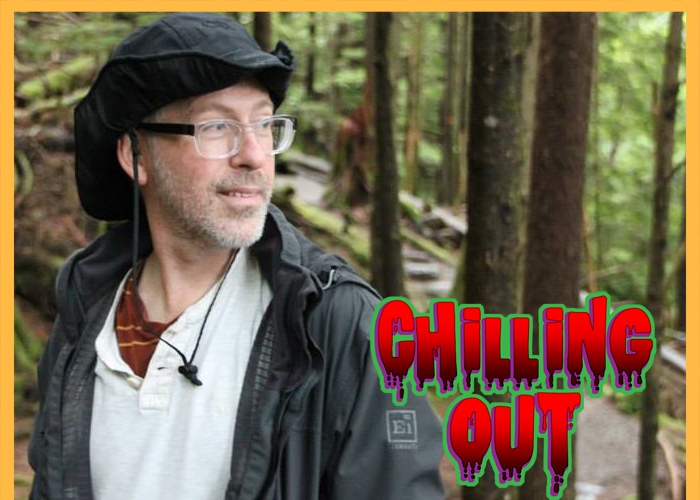
 Chilling Out is where TrunkSpace talks all things horror and genre with those who work in the projects that give us the thrills and chills to keep coming back for more. This time out we’re talking with director Kevin Greutert about his latest film, the thriller “Jackals” starring Deborah Kara Unger, Stephen Dorff, and Jonathon Schaech.
Chilling Out is where TrunkSpace talks all things horror and genre with those who work in the projects that give us the thrills and chills to keep coming back for more. This time out we’re talking with director Kevin Greutert about his latest film, the thriller “Jackals” starring Deborah Kara Unger, Stephen Dorff, and Jonathon Schaech.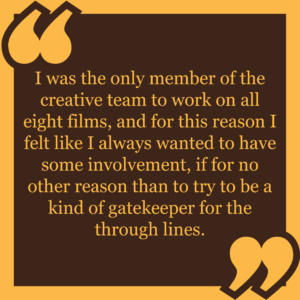 happen. I think there’s some audience excitement to see this new installment, but not nearly on the level of the previous films, though this is difficult to gauge since the cruel removal of the message boards from IMDb, as well as the erasure of House Of Jigsaw, the main “Saw” series forum.
happen. I think there’s some audience excitement to see this new installment, but not nearly on the level of the previous films, though this is difficult to gauge since the cruel removal of the message boards from IMDb, as well as the erasure of House Of Jigsaw, the main “Saw” series forum.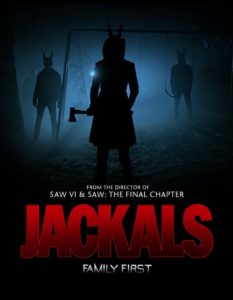 TrunkSpace: You are wearing multiple hats on your new film “Jackals,” tackling both directing and editing. Does editing a project that you also directed help to further cement your cinematic vision on any given project? Are you giving away control on a project when someone else is serving as editor?
TrunkSpace: You are wearing multiple hats on your new film “Jackals,” tackling both directing and editing. Does editing a project that you also directed help to further cement your cinematic vision on any given project? Are you giving away control on a project when someone else is serving as editor?